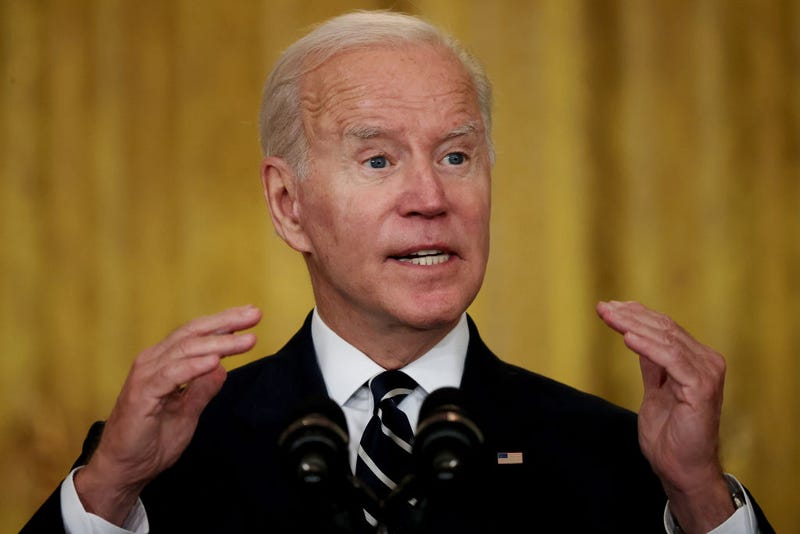
President Joe Biden this week announced what he called a “historic” economic framework that is expected to come in the form of a $1.75 trillion spending bill.
After months of work with other Democrats to pass the bill through a reconciliation process that would not require Republican approval, Biden’s initial $3.5 million spending proposal was significantly reduced. So, what is still in it?
According to the Associated Press, the package will include: tax breaks for certain demographics, education programs, health care programs, child care programs, housing programs and environmentally-focused spending.
As far as tax breaks go, many families with children age 17 or younger can expect to see expanded child tax credits continue for another year. These credits were increased by Democrats to $3,000 per child age 6-17 and $3,600 per child age 5 and under as part of federal COVID-19 relief legislation. Households earning up to $150,000 per year get the credit paid out to them on a monthly basis.
While the bill only includes a one-year extension of the program, the AP said that some lawmakers intend to keep it going longer.
Expanded Earned Income Tax Credit that goes to 17 million childless, low-income workers will also be offered for another year.
Education spending covered by the package includes universal prekindergarten for all 3 and 4-year-olds and child-care subsidies for poorer and middle-income Americans are part of the package for the next six years.
Another $40 billion in spending has been allocated for higher education and workforce development such as Pell Grants, funding for historically Black colleges and universities and funding for institutions where students are largely Hispanic or from tribal communities.
With the bill, child care is expected to get a boost due to a stipulation that parents making up to 250 percent of their state’s median income to pay no more than 7 percent of their income on child care. To be eligible, parents must be working, seeking a job, in school or dealing with a health issue.
Changes to health care included in the bill are an expansion of Medicare to cover hearing aids for estimated $35 billion over 10 years, expanded tax credits for insurance premiums tied to the Affordable Care Act through 2025 to help 3 million currently uninsured people get coverage and $150 billion for a Medicaid home health care program. There is also $90 billion set aside for investments in maternal health, community violence initiatives, disadvantaged farmers, nutrition and pandemic preparation.
Lawmakers have included $150 billion toward building 1 million new affordable rental and single-family homes as well.
Combating climate change is another goal Democrats hoped to address with the legislation. Spending on environmental issues in bill covers $320 billion worth of clean energy tax credits that are intended to help businesses and homeowners shift to renewable energy sources for electricity, vehicles and manufacturing over the next decade, $105 billion toward investments that would improve communities’ ability to withstand the extreme weather caused by climate change, $110 billion to help develop new domestic supply chains and develop new solar and battery technologies and $20 billion for the government to become the buyer of clean energy technologies.
In order to fund the programs, the government plans to raise taxes on corporations and people who earn more than $400,000 annually.
Overall changes to taxation included in the bill are: a bolstering of the Internal Revenue Service to improve collections, a 15 percent minimum income tax on large corporations, a 1 percent surcharge on corporate stock buybacks, a new surtax on multi-millionaires and billionaires and closing a loophole that allows some wealthy taxpayers to avoid paying the 3.8 percent Medicare tax on their earnings.
Additionally, the U.S. plans to join an agreement reached by more than 100 countries earlier this month designed to deter multinational companies from stashing profits in low-tax countries.


